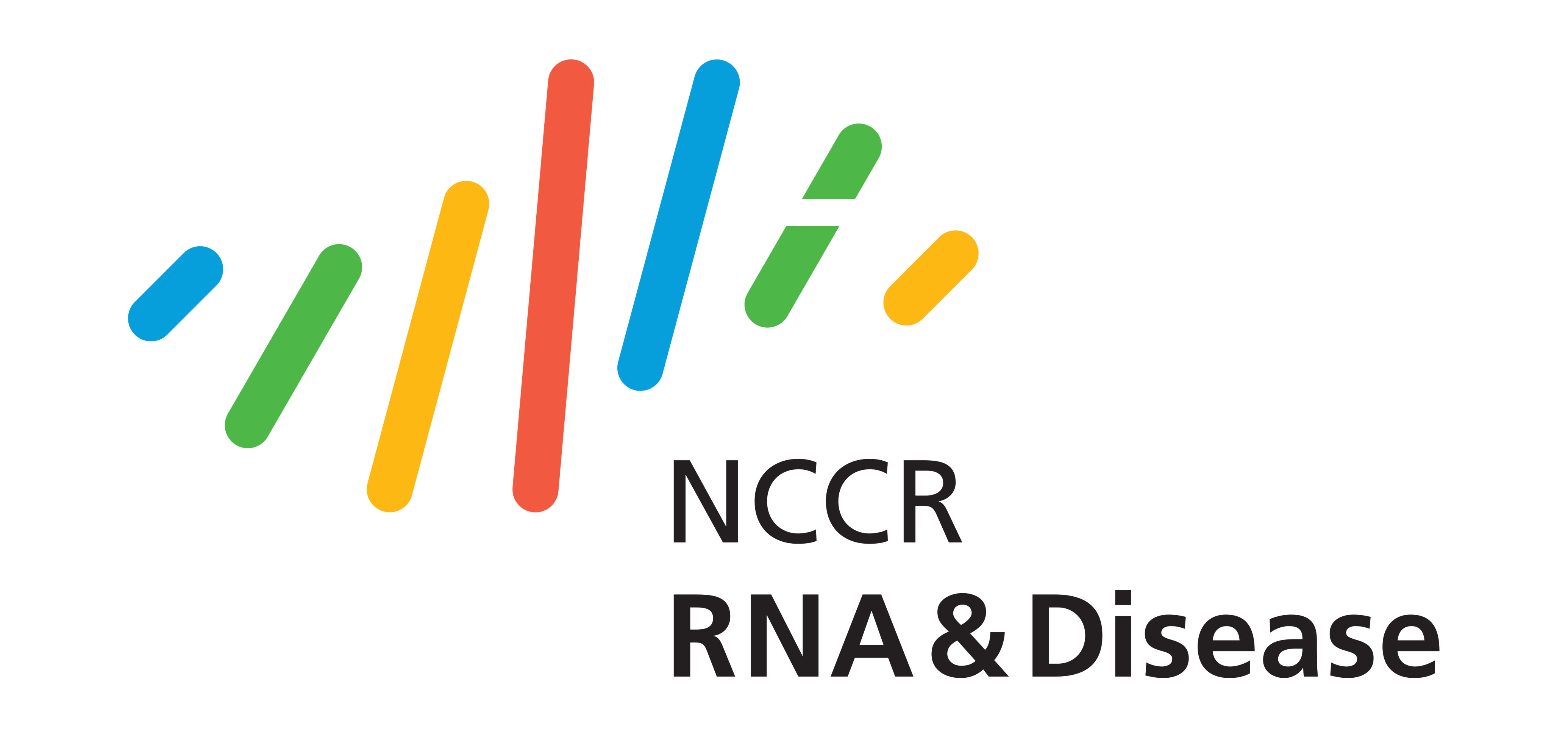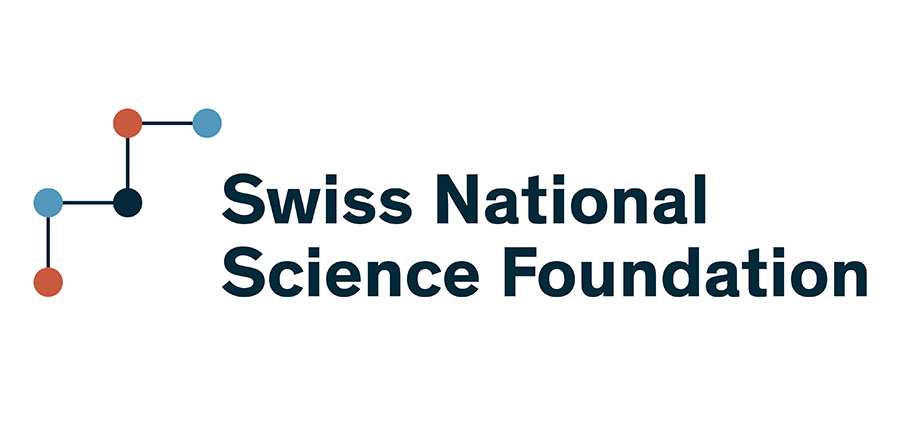Research
RNA Biology - that`s what excites us
The Mühlemann lab investigates post-transcriptional gene regulation in mammalian cells.
One longstanding research focus on the lab is trying to decipher the molecular mechanism and the biological and medical implications of nonsense-mediated mRNA decay (NMD). NMD is an important mRNA quality control process that recognizes and degrades mRNPs that fail to properly terminate translation. However, NMD also regulates expression levels of many physiological mRNAs.
Another research focus concerns the packaging of nascent pre-mRNAs with hnRNP proteins and other RNA-binding proteins. The pre-mRNP architecture determines mRNA maturation steps like splicing and nucleo-cytoplasmic export.
The Mühlemann lab investigates post-transcriptional gene regulation in mammalian cells.
One longstanding research focus on the lab is trying to decipher the molecular mechanism and the biological and medical implications of nonsense-mediated mRNA decay (NMD). NMD is an important mRNA quality control process that recognizes and degrades mRNPs that fail to properly terminate translation. However, NMD also regulates expression levels of many physiological mRNAs.
Another research focus concerns the packaging of nascent pre-mRNAs with hnRNP proteins and other RNA-binding proteins. The pre-mRNP architecture determines mRNA maturation steps like splicing and nucleo-cytoplasmic export.

Quality control of gene expression:
Mechanisms for recognition and elimination of nonsense mRNA in mammalian cells
Complex industrial manufacturing processes require multiple quality control checks along the assembly line to ensure a high proportion of correctly assembled, properly functioning final products. Similarly, multiple quality control systems have evolved to recognize mistakes in the intricate chain of complicated biochemical reactions that are involved in the correct expression of the genetic information in each of our cells. Among those, “nonsense-mediated mRNA decay” (NMD) represents a translation-coupled quality control mechanism that recognizes and rapidly degrades mRNAs of which the protein coding sequence is truncated by the presence of a premature termination codon (PTC). By eliminating these defective, so-called nonsense mRNAs with crippled protein-coding capacity, NMD substantially reduces the synthesis of potentially deleterious truncated proteins in the cell. Given that about 30% of all known disease-causing mutations in humans lead to the production of a nonsense mRNA, NMD serves as an important modulator of the clinical manifestations of genetic diseases, and manipulating NMD therefore represents a promising strategy for future therapies of many genetic disorders. Despite 30 years of intensive research, our understanding of the underlying molecular mechanisms of NMD is still fragmented.
A main goal of our research is to understand at the molecular level how PTCs are recognized and distinguished from correct termination codons and how this recognition of nonsense mRNAs subsequently triggers their rapid degradation. Since NMD is tightly coupled to translation termination, we began to investigate the process of translation termination on NMD sensitive and NMD insensitive mRNAs to gain insights into the mechanism of PTC recognition and NMD activation. We employ both, biochemical in vitro approaches and in vivo (i.e. in cultured human cells) assays to address these questions, including state-of-the art next generation sequencing and proteomics.
Publications
Annibaldis et al, Nucleic Acids Res 2020
Karousis et al. Nature Commun 2020

NMD as a posttranscriptional regulator of gene expression
Transcriptome profiling in yeast, fly and mammals revealed that the steady-state level of about 10% of all mRNAs is affected by inactivation of NMD, indicating that NMD has a function beyond quality control as a mechanism for translation-dependent post-transcriptional gene regulation. We would like to gain more insight into this NMD-regulated mode of gene expression by analyzing physiological examples regulated in this manner.
To this end, we develop means to manipulate NMD activity in human induced pluripotent stem cells (iPSC) to study the role of NMD in cell differentiation and lineage commitment.
In addition, we obtained evidence that cancer cells depend on NMD to efficiently proliferate and we are testing if pharmacological inhibition of NMD might be a promising therapeutic strategy to treat some tumor types.
Furthermore, we are also investigating the role of NMD as an innate immune response against RNA viruses such as Semliki Forest Virus (SFV) and SARS-CoV-2 and the interplay between viral and host cell proteins and its functional consequences for the viral replication cycle and host cell gene expression.
Publications
Nasif et al., (2023)
Contu et al, PLoS Pathogens 2021
Contu et al., Chimia 2019
Nasif et al., Sem in Cell end Dev Biol 2018
Balistreri et al, Viruses 2017
Balistreri et al, Cell Host Microbe 2014
Yepiskoposyan et al, RNA 2011

Packaging of pre-mRNPs by ribonucleosomes
In human cells, nascent polymerase II transcripts undergo several maturation steps in the cell nucleus before they are exported as mature mRNAs to the cytoplasm. Pre-mRNA splicing is a particularly intriguing process during which most of the intronic (non-coding) sequences are removed and the exonic (protein coding) sequences are stitched together. Most mammalian pre-mRNAs are spliced in several different ways, adding a combinatorial level to the expression of our genetic information. The exact sites that are used for splicing of a given pre-mRNA under specific circumstances not only depend on the sequence context of that pre-mRNA but also on many different RNA-binding proteins (RBPs) that assemble the pre-mRNA into a highly structured pre-mRNP. The hnRNP proteins belong to the most abundant nuclear RBPs and they play key roles in packaging pre-mRNAs into pre-mRNPs and therewith influencing splice site choice and stability of RNA.
In collaboration with the labs of Fred Allain (ETHZ), Ben Blencowe (Univ. Toronto) and Jirka Novacek (CEITEC, Brno), we are structurally and functionally characterizing the so-called ribonucleosome, 40S particles mainly composed of hnRNPA and C, that we hypothesize to represent the RNA analogue of nucleosomes, which package the DNA into higher order chromatin and thereby regulate gene expression.
Publications
Domaski et al., Nucleic Acid Res 2022
Humphrey et al., Nucleic Acids Res 2020
Loughlin et al, Mol Cell 2019
Reber et al, EMBO J 2016





